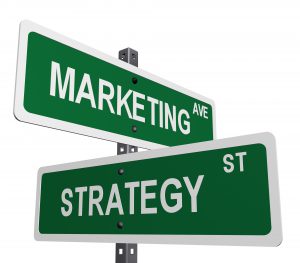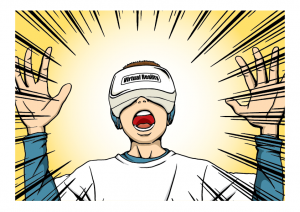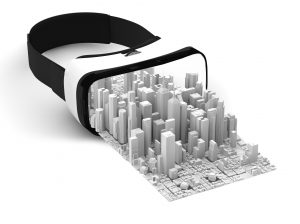Let’s face it. We live in a world that is becoming easier and easier to control. Options, choices, and alternatives surround us and help shape our lives. When something happens to us that we do not like we simply change course and continue with our day.

How does this affect marketing?
On demand content and stick and move entertainment, have whittled our attention span down to that of a fly with ADD. We click on a video, watch it for 10 seconds…”boring!”-click- another video watch it for 10 seconds…”boring!” -click- watch another video…and so on, and so on. If we don’t get the message in this short time span, we never get it, because we have already moved on.
Ad blockers are standard fare on pretty much any device we use. We got so tired of all of those flashing ads on every web page we view, their invention was inevitable. We DVR live shows and wait just long enough to watch them so we can forward through the commercials. We have developed a Pavlovian response to YouTube ads where we are able to tune them out just enough to get to the “skip ad” button while still holding a conversation. When forced to watch a 30 second ad (skip ad button removed…thanks YouTube) we only get mad and vow never to support that vendor.

When you swim in a river of spam……
You learn to ignore everything-even the relevant stuff. Commercials and advertisements started life with the noble purpose of getting product information to those who actually need it. ABC, NBC, and CBS coupled with the local newspaper were once the primary source of information. As media outlets grew, so did their advertising revenues. 30 minute TV shows with 6 minutes of commercials became hour long shows with 20 minutes of commercials. Our lives became one big commercial and we responded by not playing. Now we can speed click our way through facepage without hindrance and never know that “widget X”, the magic solution to all of the problems that you were complaining about yesterday, was filtered by your ad blocker along with all of the other spam.

Enter VR
VR or Virtual Reality as a media platform is exploding. From the humble Google cardboard to the high end HTC Vive, a whole new world of content is opening up to the masses and the developers know this. This medium of the future is not compatible with advertisements of the past. Gone are the old rules of mass media. In this brave new world of VR, the guidelines for content are still being created. Marketing in the old sense will surely fail. Simply jamming a commercial in front of your video will only cause your message not to be viewed. That doesn’t mean that there isn’t someone out there who needs and is looking for “widget X”.
People still want relevant information. New thinking is required to get the right message in front of the right people.
The one constant in VR is immersive content. To have the ability to fully experience what you see, travel to a new place, or live in a different time. This is a powerful message and attracts more and more users daily. This same quality also lends itself to deliver your marketing message as a relevant part of the overall message.
For example:

Corporate applications- By far the easiest to picture incarnation for VR marketing is corporate marketing. This is a very wide scope for VR content. VR has been successfully used by industry giants such as Ford, Airbus, Patron Tequila, Tommy Hilfiger, and Lockheed Martin.
Immersion- VR, as a medium is best used for things that are out of reach for most people. Things that are too dangerous, too expensive, un practical, or just impossible now are available for anyone to experience. The marketing advantages of being able to teleport someone anywhere are just now being discovered.
Entertainment- Content becomes more real when you are a part of it. Live events once, reserved for those actually there, now expand their audience globally. VR cinema is only now starting to spread its wings.
The bottom line is that VR marketing is pretty much the same as VR content creation. There can no longer be a distinction between the two and still get a real message across. The old ways of doing things are now in the past. There is a whole new world out there and we are the ones to make the rules.
Kevin Shannon ∙ Marketing Director ∙ In The Cloud Studios
Email: kshannon@inthecloudstudios.com


